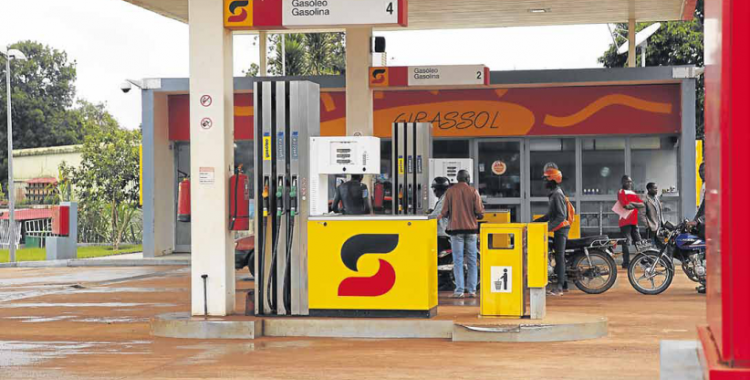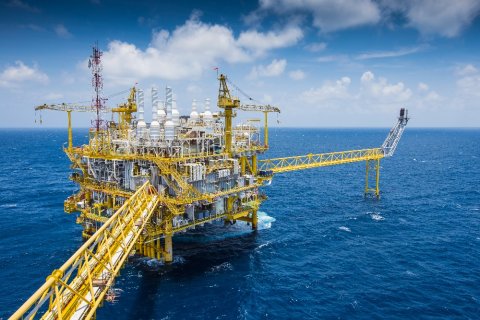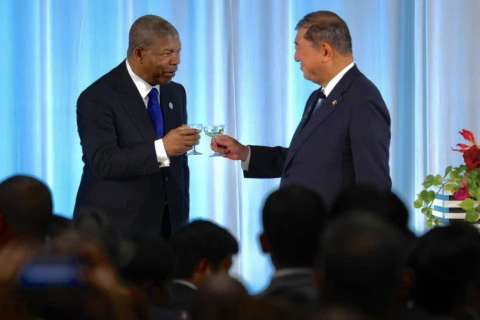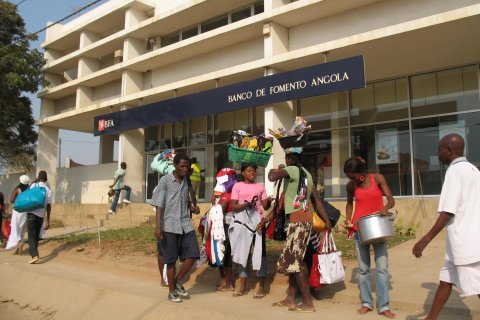If there was an increase in fuel prices, "inflation would tend to accelerate significantly, possibly returning to close to 16 percent at the end of the year and continuing to rise significantly in 2024", write the analysts in a commentary on the evolution of inflation in Angola.
In the note, sent to customers and to which Lusa had access, BFA's economic studies office emphasizes that "the course of inflation in the second half of the year is conditioned to the beginning of an increase in fuel prices", which results from the withdrawal of state fuel subsidies, something that was part of the financial assistance agreement signed with the International Monetary Fund (IMF), but which has been postponed.
"If this reform is postponed until after the end of 2023, our expectation is that the current global food price environment, together with a slight depreciation, will allow inflation to remain on a downward trend until the end of the first half, accelerating only very slightly to levels around 11 to 12 percent at the end of 2023", says the BFA.
Analysts anticipate a chain inflation rise of between 0.8 and 0.9 percent in the coming months, with year-on-year inflation "continuing to fall very gradually to a minimum of around 10 percent somewhere in the middle of the year".
However, they warn, this scenario depends on the gradual withdrawal of subsidies in the coming months: "If this adaptation does not start this year, which seems possible at this point, inflation could end the year between 11 and 12 percent, with monthly inflation accelerating in the second half of the year, due to some depreciation and a less significant drop in world food prices".
In January, the consultancy Fitch Solutions warned that the planned gradual withdrawal of fuel subsidies in Angola will be one of the main political risks this year, warning of the possibility of demonstrations, but without threatening political stability.
"The main political risk in 2023 comes from the gradual withdrawal of fuel subsidies, given that the planned withdrawal of subsidies will increase the price for consumers and influence the purchasing power of families, likely triggering protests", wrote the analysts of this owned consultancy by the same owners of the financial rating agency Fitch Ratings.
In the analysis of Angola's political risk, Fitch Solutions stressed, however, that "there are no visible risks of the protests being generalized to the point of threatening the Government" of President João Lourenço.
Angola is one of the largest oil producers in sub-Saharan Africa, but imports most of the fuel it consumes due to the lack of refining capacity in the country.
"From January, the Government intends to start reducing fuel subsidies, with the 2023 budget indicating that the cuts will be 36.7 percent, to 964.3 billion kwanzas, which we believe will be done mainly in cuts to fuel subsidies", the report reads.
The withdrawal of fuel subsidies was one of the measures most advocated by the International Monetary Fund (IMF) during the last financial adjustment programme, worth more than five billion dollars.
Angola is the fourth country in the world where it is cheaper to fill a fuel tank. While in Europe – and in Portugal, in particular – motorists opt for utility vehicles and take fuel consumption into account at the time of purchase, in Angola, a country endowed with a car park where robust jeeps and 'pickups' abound, this does not seems to be a concern, since it is almost always cheaper to "drink" the car than quench thirst.
While the average price of 1.5 liters of bottled water is around 180 kwanzas, a liter of gasoline costs 160 kwanzas, that is, five times less than in Portugal, according to the Global Petrol Prices website, according to January data.
Angola shares with Nigeria the status of the largest oil producer in Africa, but imports a large part of the fuel it consumes, with only one refinery in operation (in Luanda) and three others in the design or construction phase (Soyo, Lobito and Cabinda) .
In the first quarter of 2022 alone, the Government subsidized AOA 339.7 billion in fuel distributed across the country.
The Minister of Finance admitted, last December, that the country is negotiating with international partners the appropriate compensation for the removal of state subsidies on fuel prices, a political decision that has not yet been taken.







